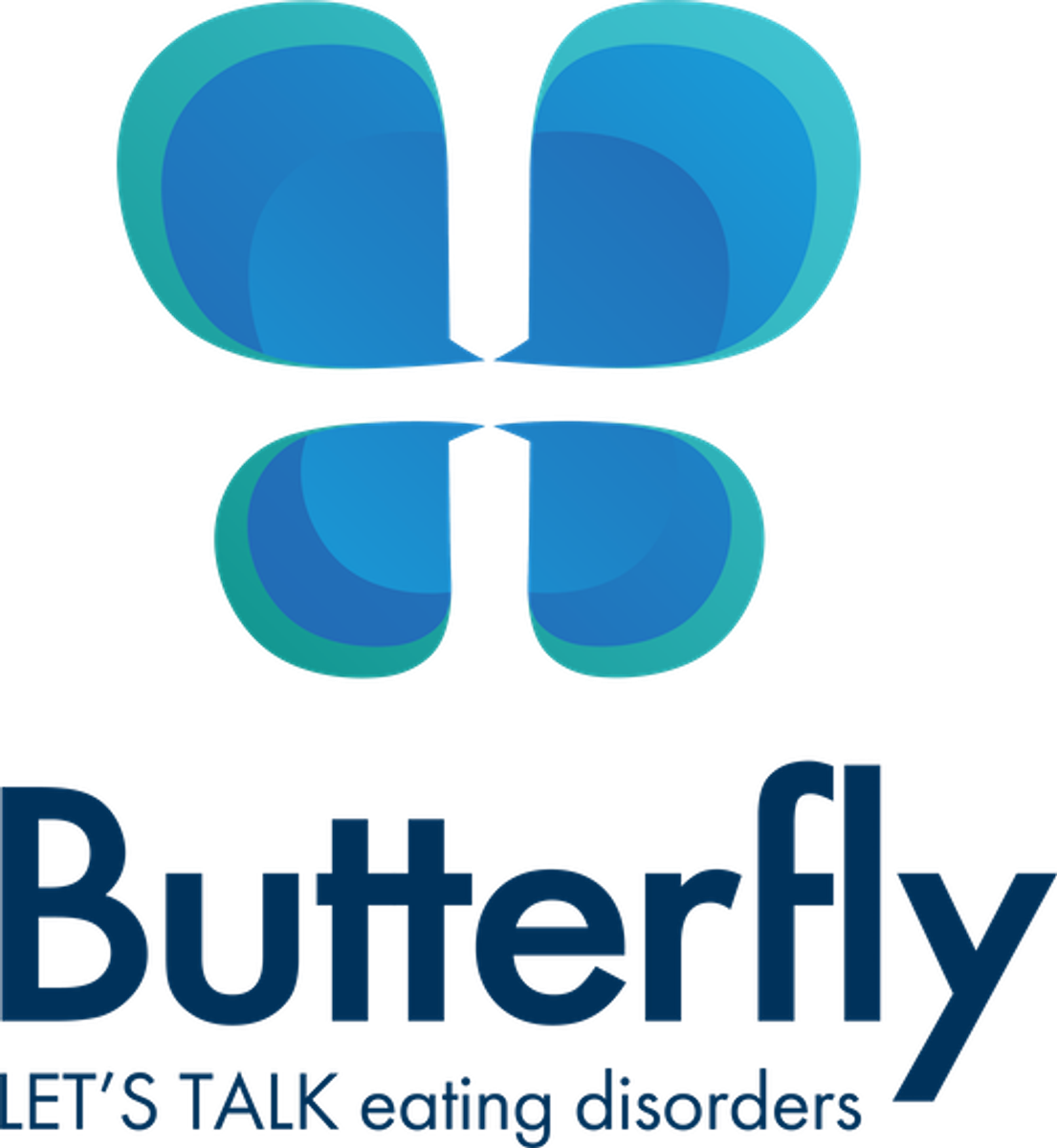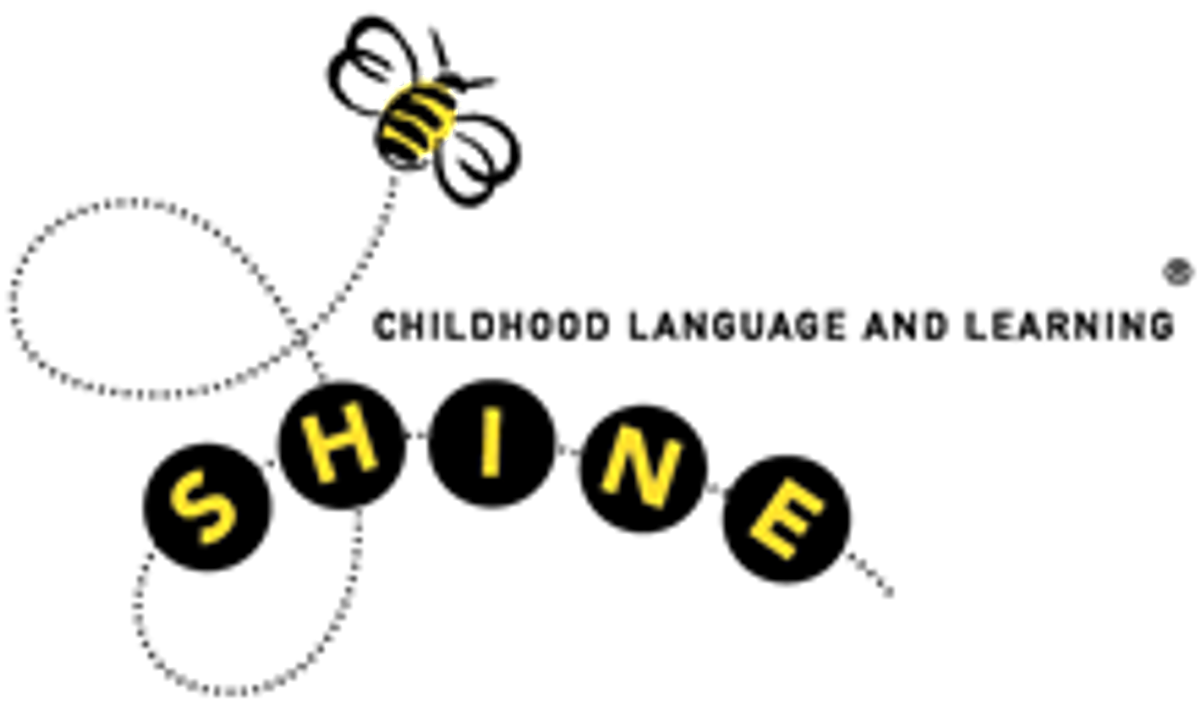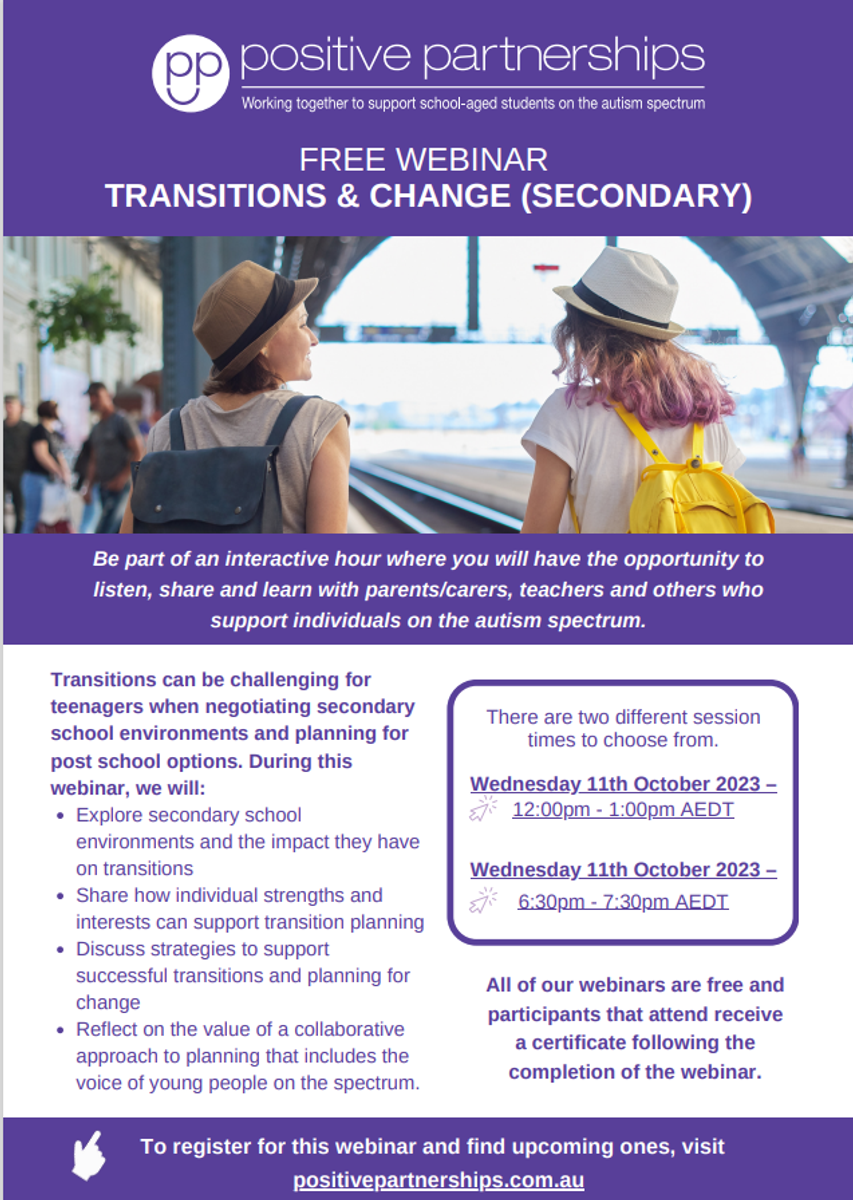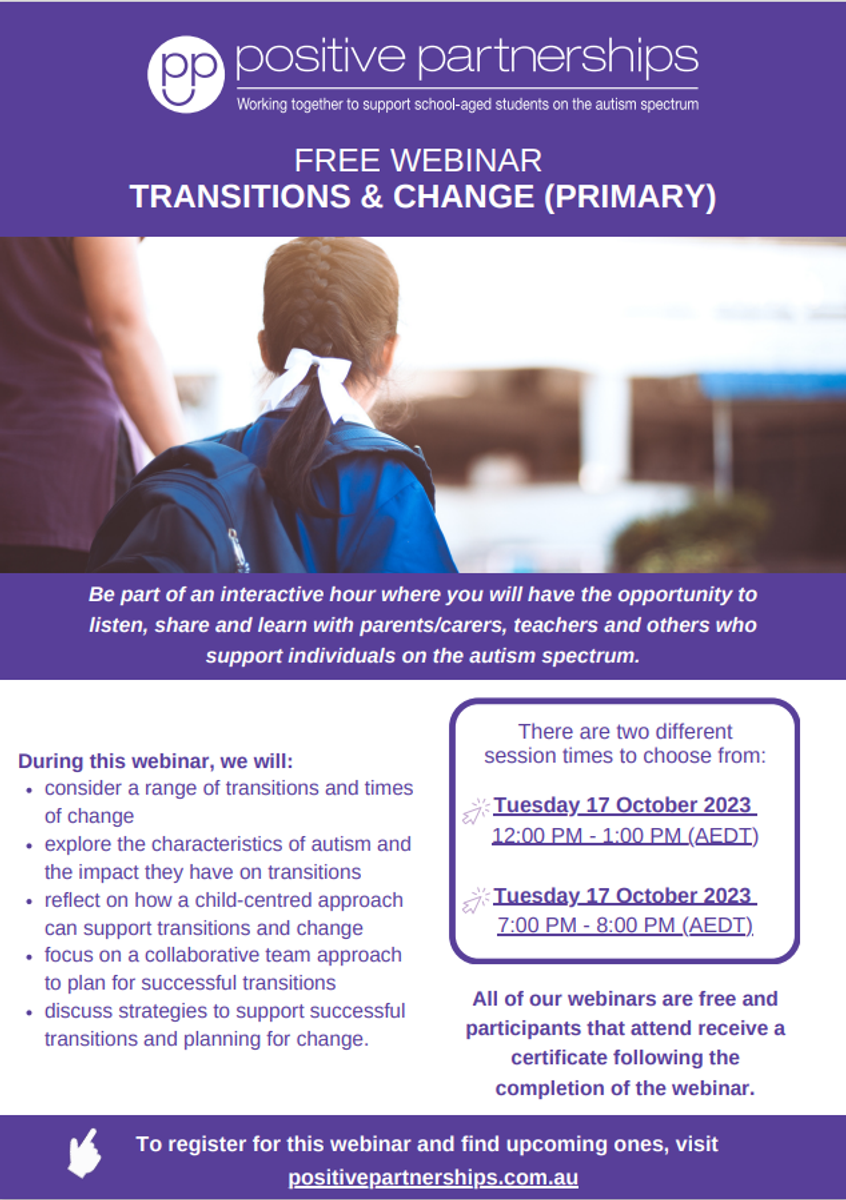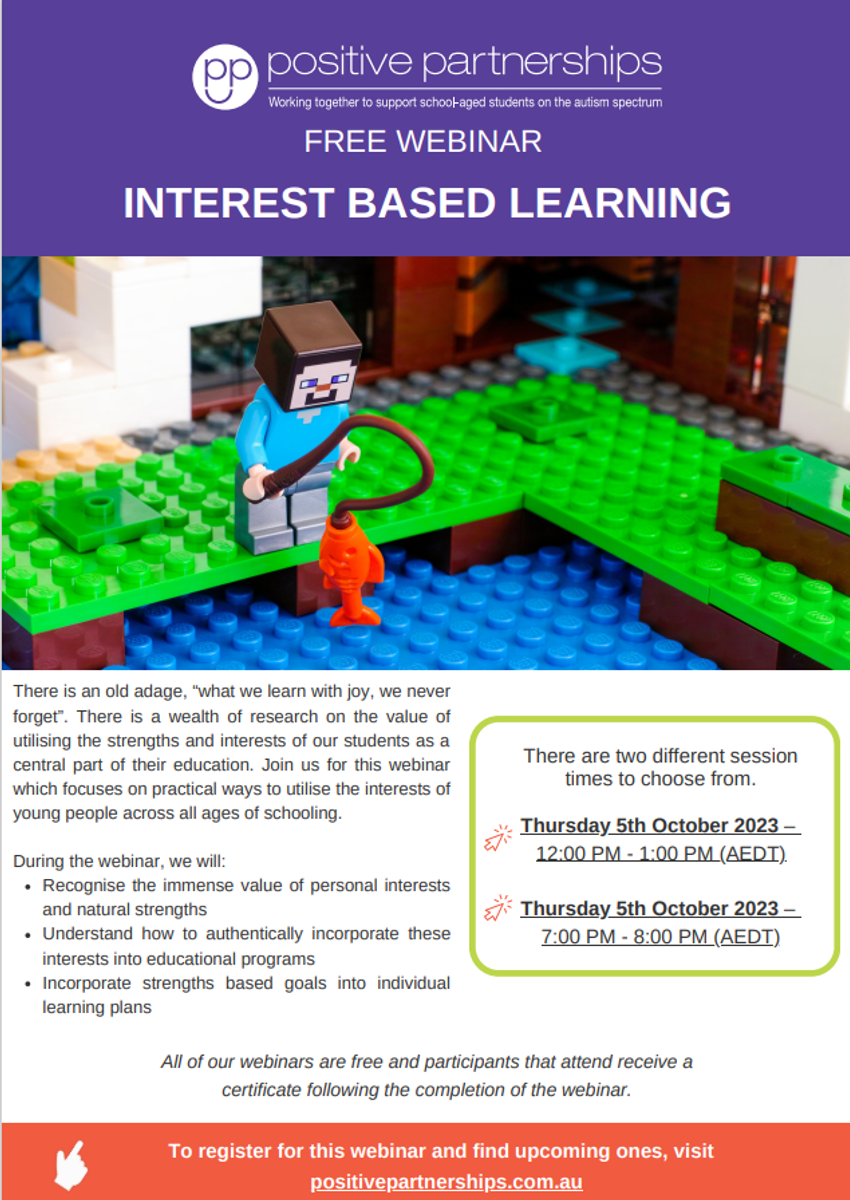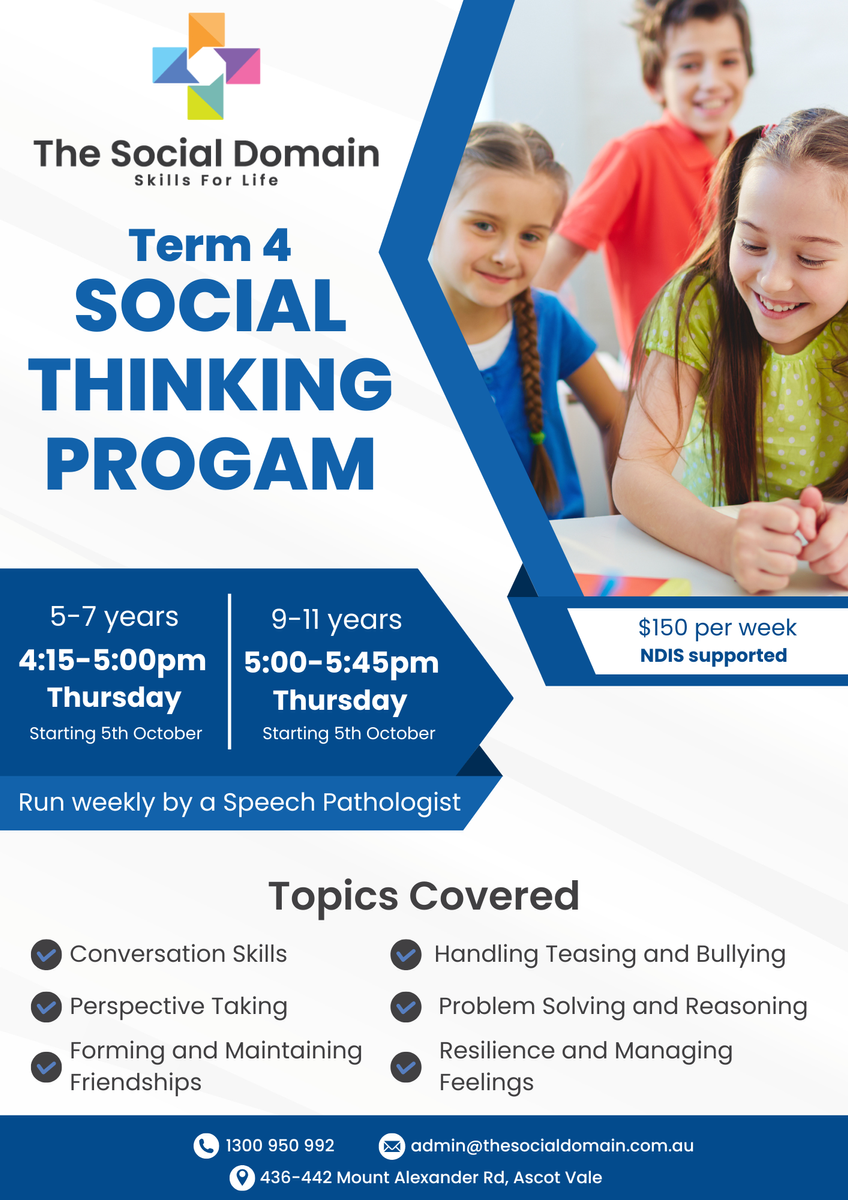Wellbeing

Body Confident Children and Teens - For Parents
Information and practical tips for parents of primary and secondary-age children on how to promote positive body image in the home.
Topics covered include: Body image influences | The role of body image in problematic eating and exercise behaviours | How to positively role model | Responding to appearance talk and appearance-teasing |What to do if concerned.
DetailsTuesday, 17th October7 - 8pm (AEDT), plus question timeVia Zoom (recording available)$15
Register: https://events.butterfly.org.au/portal//event/?id=EP_BCCT_Parent_Webinar2583081573&Name=17/10/23
SHINE January Intensive Multidisciplinary Program
SHINE January Intensive Multidisciplinary Program
The SHINE January Intensive Multidisciplinary Program is a renowned intervention program run for 27 years by the Andrew Dean Fildes Foundation (SHINE). It is free for families and funded through philanthropy. It attracts health professionals, educators, and families from across Victoria, including regional areas. SHINE employs highly qualified and experienced professionals from a variety of disciplines including speech pathology, occupational therapy, psychology, and art therapies (art, dance, drama, music) who use evidenced-based practices and work together to support children. Children are involved in fun and engaging activities that target their learning/intervention goals. The SHINE staff work with university students studying health degrees to assist in program delivery.
In 2024, the January SHINE Program will be delivered at St Kilda Primary School in St Kilda Monday-Friday over 2 weeks, between the 8th - 19th of January. Successful applicants will be invited to attend for one full week (Monday-Friday) 9am-3pm each day (except the last Friday when the program finishes at 1pm). Successful applicants will be allocated to a group intervention or individual assessment/intervention program
In order to be eligible to attend a program, a child must:
- Be of school age and have an appropriate assessment, diagnosis, or known goals that can be worked upon during the program
- Have an IQ in the normal range (70 or above)
- Have hearing and vision within the normal range (or have glasses or hearing aids that allow this)
- Be able to independently move and care for self (toileting, eating)
- Be able to participate in individual and group activities - not have a major mental health or behaviour problem
Selection for the program is based on various factors including understanding of child’s needs based on application information and suitability for programs/groups relating to child needs and age. Priority may be given to those who 1. Supply more information to support their application 2. Return application earlier 4. Have limited access to assessment and intervention services 3. Vulnerable families and children experiencing disadvantage in relation to their diagnosis and family/social/economic situation
Below are some of the programs offered at the upcoming January program. Please distribute the Expression of Interest Form (attached) to families who you believe would benefit
More information at the SHINE website: www.shine.org.au
Program types offered at the SHINE January Intensive Multidisciplinary Program
- Sensory/self-regulation Program
- Social skills Program
- Positive Self-Esteem & Mindfulness Program
- Lego Therapy Program – supporting conversation and social skills
- Narrative Program – supporting the telling of stories to support grammar/reading/writing
- Literacy Reading/Writing Programs
- Phonological Awareness Program – supporting pre-literacy skills
- Writing program – supporting handwriting
- Language Program – supporting oral language skills
- Speech/Articulation Program
- Play Therapy Program
- Executive Functioning Program
Sensory/self-regulation Program
The sensory and self-regulation group program will support the development of a child’s ability to understand and manage their behaviours and reactions. Self-regulation skills will support a child’s ability to develop impulse control, regulate reactions to strong emotions and focus on tasks. The program will help children learn to identify, monitor, maintain and change their level of alertness to support self-regulation of emotions and control of behaviour, assisting students to use self-regulation strategies. This includes supporting children who have difficulties with concentrating.
Social Skills Program
The program will support children to develop socially skilled behaviours that will help them develop friendships and get along with others. The group program will incorporate art, dance and music to support the development of interactions at school. Over the course of a week, children will participate in a range of creative activities, role plays and reflective practices with the aim of exploring and developing social skills whilst in a supportive environment. Topics such as team-building, listening, anger and/or anxiety management, overcoming challenges, resilience and self-reflection will likely be addressed through creative and imaginative processes over the course of the week.
Positive Self-Esteem & Mindfulness Program
This small group program is for students with low self-esteem and anxiety. These children often can be reticent to speak, concerned about making mistakes, or thinking they are never good enough at school. This program aims to change their attitude and show them they can be successful.
Lego Therapy Program
Lego Therapy is a naturalistic, play-based social skills program that uses Lego as its main activity. It is designed to improve school-age children’s (ages 7;0 to 14;0 years) social competence. This intervention approach targets a variety of aspects of social interaction, including joint attention, turn taking, initiating and maintaining conversation, conflict resolution/problem solving, asking for assistance, friendship building, teamwork/collaboration, and functional use of language for social purposes.
Narrative Program
The Narrative program is aimed at assisting children who need help to tell stories (or write stories) at school. Narrative work is useful for children learning to sequence, learning the parts of telling a story, and learning to tell a fully developed story. The work in the narrative program can entail listening to stories and answering questions or retelling a story or developing your own stories. This is a critical skill in school. Some of the programs we use include: Story Building, Story Grammar Therapy, Story Champs, SKILLS Program (Supporting Knowledge in Language and Literacy).
Literacy - Reading Program
The program is aimed at helping children who have difficulty with reading. Children suitable for the program may struggle to read words, sentences or passages. Children may also need support in development of their phonics awareness and letter/sounds knowledge and relationships. The goals will vary for each child.
Literacy – Reading Comprehension Program
The program is aimed at helping children who have difficulty understanding what they read, including passages and paragraphs. The goals will vary for each child. The program will support your child in the development of strategies to aid their comprehension.
Literacy – Writing Program
The program is aimed at helping children who have difficulty writing sentences/passages (including content of writing, grammar, organisation of ideas) and spelling. The program can support planning of writing passages, generation of ideas and use of writing conventions and punctuation. The goals will vary for each child.
Phonological Awareness Program
The program is aimed at helping children with their pre-literacy skills, including knowledge, awareness and manipulation of the speech sounds to support literacy development. Skills include blending, segmenting sounds and syllables.
Writing Program – Handwriting
An individualised program is for students who have writing difficulties. The goals will vary for each child. Some of the goals might be to; increase fine motor skills, holding the pencil properly, writing letters and words neatly, using appropriate spacing, generating good ideas to write about, organising your ideas, selecting the best words to use, and use of writing conventions (caps vs small, punctuation, & proper spelling). These programs may also work on text types like recounts, information reports, exposition, explanation, description, procedure, discussion, response, or narrative writing. These programs may also entail keyboarding, use of computers, and alternative for writing using speech to text.
Language Program – speaking and understanding spoken language
An individualised program for students who have a language impairment or language disorder. It will support children with their use of words and sentences, including grammar and syntax.
Speech/Articulation Program
An individualised program for students who have a Speech Impairment or pronunciation difficulties. It will support children in their production of sounds and words so they can speak more clearly.
Play Therapy Program
The play therapy program draws upon the evidence-based extensive research work by Karen Stegnetti to develop spontaneous pretend/imaginative play in children which will foster a child’s ability to play independently and with peers. Pretend play promotes language and social development and the emotional integration of a child’s experiences. During the program there will be additional focus on language and literacy development of children. It will further support wellbeing, self-esteem and anxiety reduction.
Executive Functioning Program
An individualised program for children with executive functioning difficulties, including attention, impulse control and inhibition, emotional control, task initiation, working memory/processing, flexible thinking and understanding different points of view, planning/organisation (sequencing) and prioritising, time management, goal directed persistence, organisation of materials, self-monitoring, metacognition.

